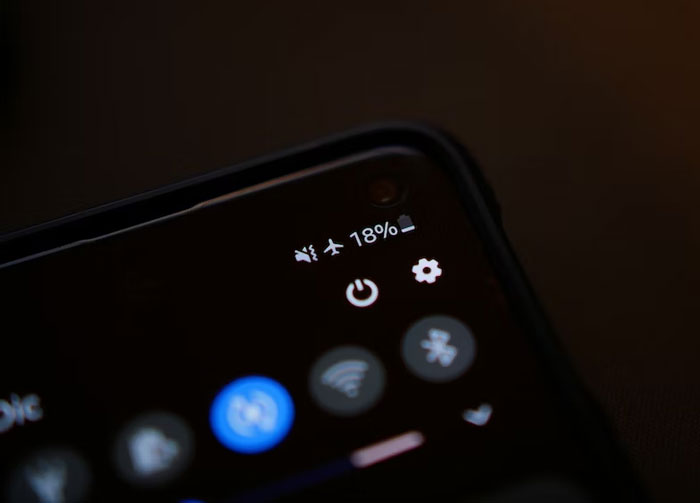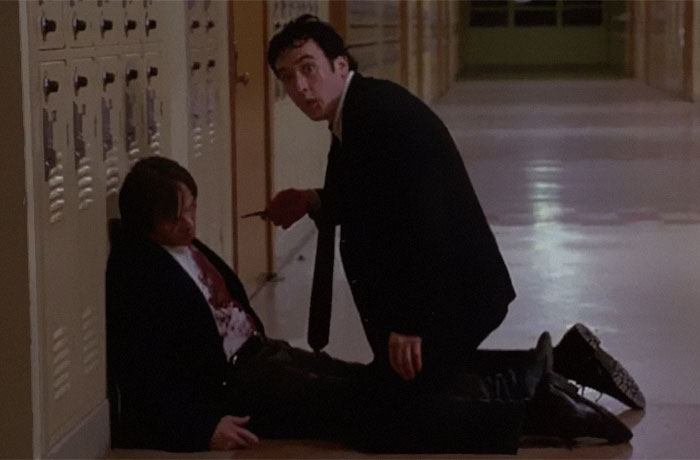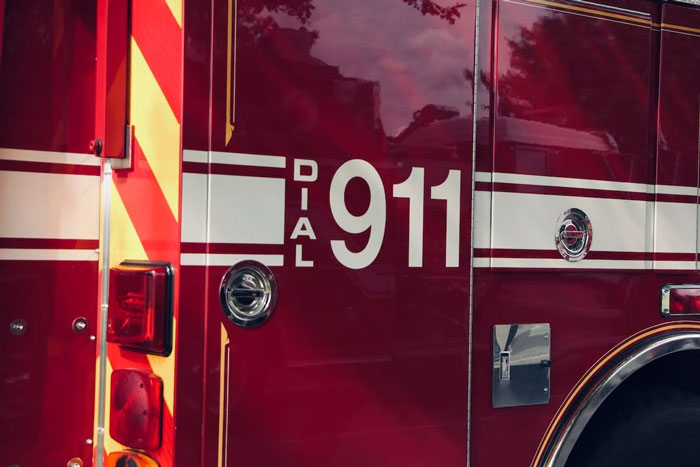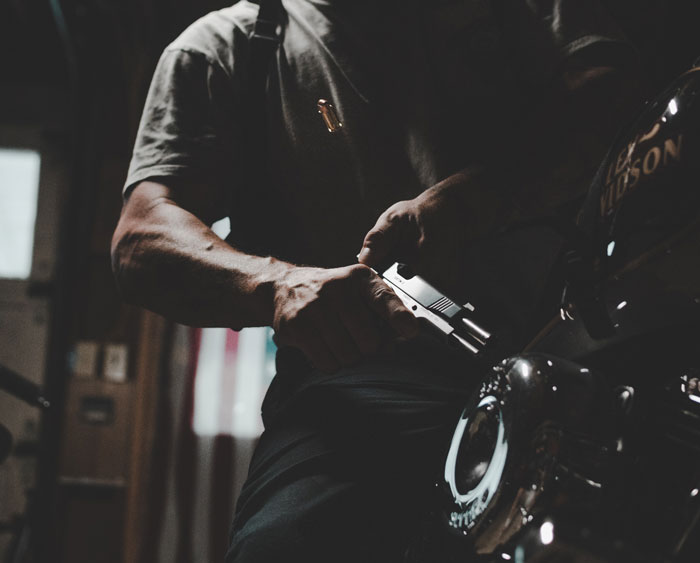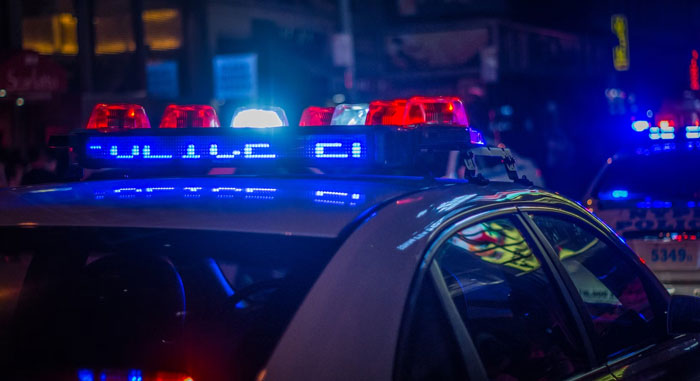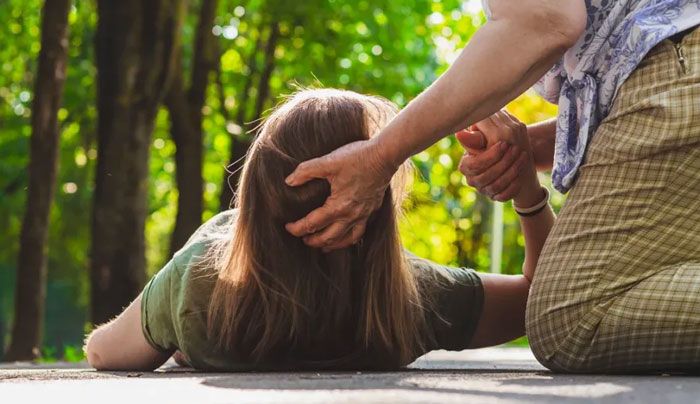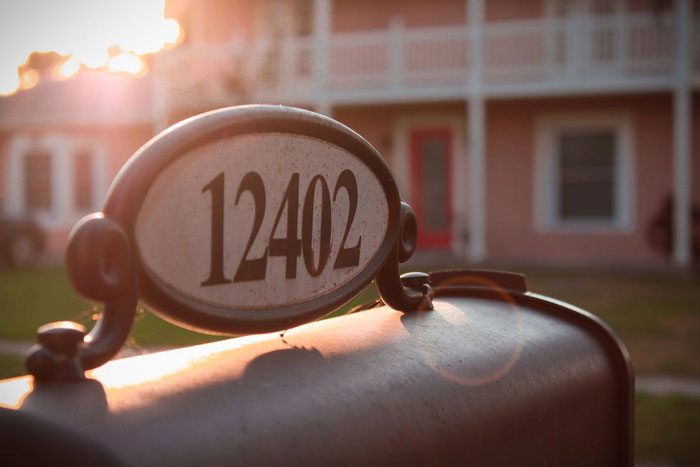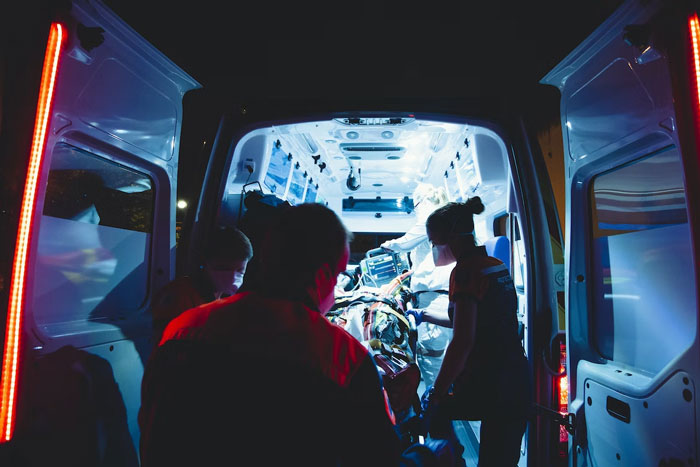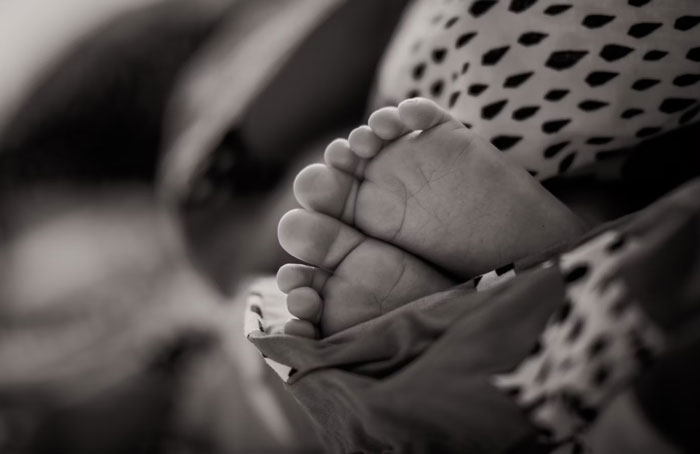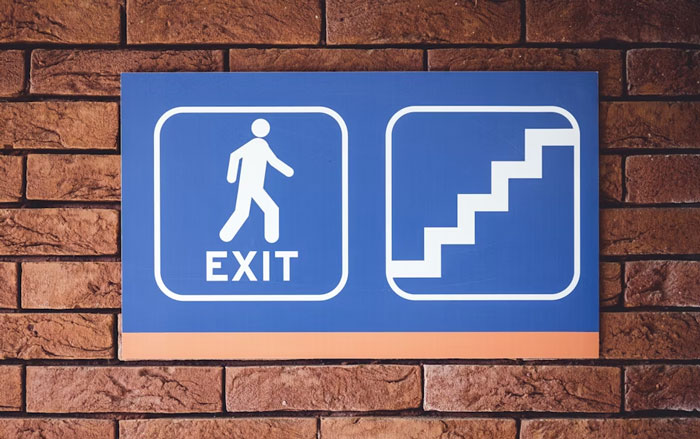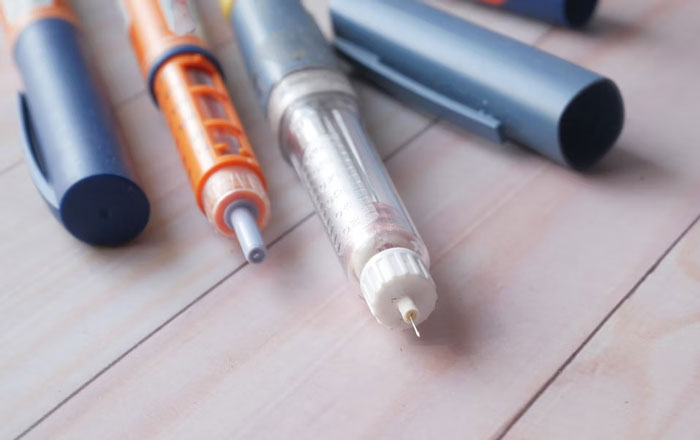A first responder is a specifically trained person who usually arrives at the scene of an emergency or crisis before anyone else.
These folks include (but are not limited to) police officers, paramedics, and firefighters, since response times are often seen as a very important aspect of all three fields (law enforcement, fire suppression, and emergency medical services (EMS)). That’s because these types of emergencies can escalate rapidly if nobody is able to do something to stop them. Sometimes, however, even a regular passer-by could help.
Recently, Reddit user u/PeachMilkshake2319 made a post on the platform, asking first responders to share some information about what you should and should not do in dangerous situations, and the advice they’ve received sound really valuable.
#1
Get off your damn cell phone when you drive.
#2
I just read something that if you’re lost and your phone is about to die, change your voicemail to give an approximate location of where you are.
Image credits: TransportationOk2238
#3
Ex-EMT here. We’re talking 13 years ago.
It’s not a great idea to put the pedal down as soon as the traffic light turns green. Wait a couple extra seconds. That first 2-3 seconds when the light turns green is a GREAT time to get nailed by some idiot blowing through a red light.
Image credits: CDC_
#4
If you are dealing with someone who has been stabbed or impaled and the item is still inside the body, do not pull it out.
Image credits: justneedadvice87
#5
When you call an emergency number, the first words out of your mouth should be your location/address. That way, if you get cut off they at least know where to look for you.
Image credits: Knarren
#6
If everyone in a room/vehicle/building is unresponsive, DO NOT ENTER FOR ANY REASON. If you see someone collapse after entering a confined space, DO NOT ENTER FOR ANY REASON. If you see a person collapsed near a potential chemical spill, DO NOT ENTER FOR ANY REASON. Overall, if it killed them, it will kill you.
#7
Treat every gun as if it’s loaded.
llllPsychoCircus replied:
Proper weapons handling according to the Marine Corps
Rule 1: Treat every weapon as if it were loaded.
Rule 2: Never point a weapon at anything you do not intend to shoot.
Rule 3: Keep your finger straight and off the trigger, until you are ready to fire.
Rule 4: Keep the weapon on safe, until you intend to fire
Rule 5: Know what lies beyond and between you and your target.
Image credits: RangerDangerfield
#8
Wear the seatbelt. It’s there for a reason.
#9
One thing a senior supervisor taught me as a crisis social worker, if it feels bad or wrong trust it. Don’t push past it, there’s usually a good reason you intuitively know that. Also, lock up your damn guns.
Image credits: sbpurcell
#10
If you lose your child in a crowded area, shout out what they’re wearing as well as their name. It makes them much easier to identify to others.
If you’re swimming in the ocean and you get knocked over and can’t tell which way is up, exhale and follow the bubbles.
Image credits: merrywidow14
#11
The tv line, “somebody call 911!” doesn’t work. The crowd will assume some else has, and so no one will.
If you come upon the emergency, and you don’t see someone already calling 911, YOU DO IT, or you take charge of the scene (like if you’re doing CPR) and *appoint* someone to do it and report back to you.
“In an emergecy, the one with the flashlight becomes the leader.”
Image credits: ForswornForSwearing
#12
Don’t put anything in the mouth of someone having a seizure, protect their head and let them seize.
Image credits: MrFunnything9
#13
Have your address clearly marked & lit so responders can get to you quickly… every second counts.
Image credits: Ten7850
#14
My Uncle used to be a Cop. He said that if someone is Overdosing, you should still call 911 because you could save their life, and there will be absolutely no legal trouble. And you don’t have to wait 48 Hours to report someone is missing. The sooner the Better. My Dad used to be a Firefighter. He said that if you ever wake up to the smell of Gas, don’t turn anything on, because it’s electrical damage, and it can cause a firey explosion. He also said that when cooking something in a pan, And it catches on Fire, Don’t use Water to put it out, use the pan cover.
Image credits: BR_GTX
#15
I’m not a first responder, but I have a friend who is.
He says STAY OFF OF TRAIN TRACKS. Don’t squish pennies or do photo shoots on them or walk on them at all. Believe it or not trains can sneak up on you at an alarming speed and they DO NOT slow down.
#16
Paramedic here almost 5 years.
Don’t put your feet up on the passenger dash.
Febrile seizures are common in babies. Most of the time they are completely benign. Still a good idea to call us incase there’s another reason why they are seizing. For a new parent, I understand it’s terrifying. It’s not how high their temp gets, it’s how fast it gets there. Don’t bundle them up if they have a fever. I know they’re cold but that’s just the fever. Give them meds.
Seriously consider how emergent your emergency is before agreeing to have us transport you or your loved one. We can’t deny your request for an ambulance, and we really can’t say ‘this doesn’t warrant an ambulance ride’. So just use your best judgement, if you are able to. Grandma feels weak and throwing up? She’s probably sick. Take her to the hospital or better, an urgent care. Don’t really need an ambulance for that. Your back has been hurting for a week? Don’t really need an ambulance for that. Hurt your ankle in the shower? Don’t really need an ambulance for that. You feel lonely cause you’re old and your kids don’t visit/call? DON’T REALLY NEED AN AMBULANCE FOR THAT! Other people DO need one and you are taking away a VALUABLE resource from them! My city of 350K people only has 6 ambulances. Yes just 6! Don’t waste them! Each call can take up to 2 hours with driving to you, transporting, waiting for a bed, and cleaning. 2 hour window where somebody won’t have an ambulance quickly because you have the flu.
#17
Whenever you encounter an emergency situation, stop what you’re doing and say to yourself “This is not MY emergency”
This will (hopefully) allow you to take a step back & assess the situation & prevent you from making poor, split second decisions.
So many people jump into swift water trying to save someone else, only to become a second victim. Some people quickly try to extricate victims, but injure then further.
Allow yourself to look at things as objectively as possible and you’ll make much better decisions.
Image credits: classless_classic
#18
If you’re going to a big crowded event with a small kid, get a sharpie and write your phone number on their arm. Teach them to find someone in a hi-vis and show it to them if they get separated from you.
Image credits: No-Performance2445
#19
Career Coast Guard here:
Wear your life jacket. Period.
Don’t drink and drive a boat. Period.
Use the kill switch on your boat/PWC.
Know where you’re going, tell two people your itinerary.
Make sure a second person on the vessel knows how to operate it. Practice man overboard drills/situations.
The backfire flame arrester on your engine is your friend, do not remove it. I promise you it doesn’t “gain you any horsepower” when you remove it.
Keep a life ring / throwable within arms reach.
If you ever fall through ice you only have minutes to get yourself on the shelf. Once you’re on the shelf roll away from it towards stronger ice don’t try to stand up and walk.
#20
If you fall into cold water – first of all, FLOAT!!
> If you found yourself struggling in the water unexpectedly, your instinct would tell you to swim hard. But cold water shock could make you gasp uncontrollably. Then you could breathe in water and drown. Instead, you should Float to Live. Tell your children if they fall into water the most important thing is to float so they can shout for help & be easy to find. It calms them down to realise that this is because help will be on hand they just have to make it easier. Being calm might save their life. Tell them they can wait like that for ages if need be – just floating & shouting. I act like there’s an upcoming quiz that my kids are cramming for and randomly will ask them safety questions in any situation. They love the chance to show off & I am repeating it so often it will hopefully stick forever. Q : What’s the most important thing of you fall into water? A : Float & shout. – Q : who is allowed to pick you up in a car or take you to their house? A : nobody unless you’ve told me they will that day. – Q : what do you do if a stranger is being weird? A : go to anyone else & tell them, especially a group. – Q : what do you do if someone is holding on to you? A : BE LOUD AS HELL & kick & hit & wriggle
#21
Not something you could use to prevent a lot of casualties at once but very important information that people seem to immediately forget the moment they see someone get seriously hurt.
If you see someone lying on the ground after having an accident where they took a very nasty hit to the neck area or upper chest, do the victim a favor and leave them there. Obviously make sure they’re out of harms way but ***never*** move their head or try to lift them back up. A persons first instinct to help is to lift the person back up, if someone has a serious neck injury you can make it 100x’s worse by moving them.
Someone I know witnessed a car accident where the driver was hurled 20ft from their vehicle and landed on their upper chest. Once he’s lying on the ground everyone runs to help and everyone’s trying to help him up or sit him up. To everyone’s horror the moment he was lifted up his neck fell to the side with a loud crunch and any movement he might’ve had stopped a run toy like he was shocked with electricity.
The person helping him up snapped his neck paralyzing him, something that could’ve been avoided if they left it to the emt’s who are trained for this s**t.
Don’t f**k around with a persons body if they took a nasty hit to the upper chest.
#22
I volunteered on a SAR team for several years and here are a few pretty strait forward things that if people had known may have saved their life.
– If you fall in swift water float on your back with your knees slightly bent and feet facing down river. This lets you push off rocks without breaking your legs or being pulled under. You can use your arms and legs to try to direct your path downstream to avoid obstacles.
– Avoid crossing areas of rock where the rock slope steadily increases to a cliff or drop. This is common in granite slabs in the Sierra mountains. Even on pretty gentle slopes there can be loose gravel and once you start sliding it can be extremely hard to stop. So always keep in mind what would happen if you were to slip.
– When lost in dense woods it is very easy to wonder in circles. To avoid this line up 3 trees in the line you want to follow. Move to the middle of the 3 trees and then select a new tree keeping it in line with the others. Keep doing this to navigate in a strait line.
– You do not need cell service for your smart phone to have GPS or for the compass to work. If you get lost take note of your gps cords and use the compass to get a sense of your surroundings. Then turn off your phone and save the battery. Check for cell service if you find a high point. Your phone may still have some maps loaded so check that as well. You may get lucky and be near a trail or road.
– If you are stuck out side and getting very cold you will start to shake pretty violently. This is a good thing and means your body is trying to warm you up. If you start to get tired or feel warmer even tho nothing had changed DO NOT fall asleep. Do literally whatever it takes to keep yourself awake. If you fall asleep there is a very low chance you ever wake up. Along these lines if you suddenly stop shivering and feel a bit drunk you may be in the final stages of hypothermia and are in serious trouble. Even warming up may not be enough, seek medical attention quickly.
#23
How to perform a Heimlich on yourself, you’re a goner without a doubt if you’re by yourself and food gets too stuck.
BobRoss6995 replied:
1- try to cough the stuff up first. Hard, firm coughs.
2- if not successful, ball one hand into a fist and place it above the belly button.
3- cup with the second hand.
4- When performing the Heimlich, push both hands into the stomach and upwards towards the ribs. Hard and firmly. This is to push air upwards and push the object out.
5- If needed, add objects to aid in adding more pressure into step 4. This could be the edge of a dining chair. Lean into the object at a 30-45 degree angle. When doing the Heimlich, push into the object using your legs. Doing this, you’re using the object to push your hands further into your abdomen.
6- Repeat.
Image credits: Personalberet49
#24
1. Drownings don’t look like they do on Baywatch. Don’t expect splashing, screaming or frantic waving. People who are drowning often look like someone being a bit of a weirdo playing by themselves, head going under then popping up like a buoy that’s weighted. 2. Drowning people are dangerous to your safety and you need to approach the situation by prioritising your own survival. It is the natural response of a drowning person to cling onto whatever they can to stay afloat. That includes you. Given the chance, they will climb on your head, and you need to approach a drowning person with the assumption that they absolutely will. Proceed with a floatation device for them to cling to. If you don’t have one, approach feet first, ready to push off if they try to clamber onto you. 3. Don’t jump into the water to save someone unless you know in absolute certainty that you can get both of you back out. The ocean doesn’t care how well you swim in bathers at the pool, it is an absolute force of nature. Don’t become a second victim to be saved, your best intentions don’t help anyone. 4. Don’t walk on the rocks. Don’t swim near the rocks. Don’t fish from the rocks. Stay off the damn rocks.
#25
Stop co-sleeping with infants. They don’t need to be in the bed with you, even if you don’t plan to fall asleep. It’s crazy to me how many people argue that there’s nothing dangerous about it.
aldegundis replied:
The stories of a parent unknowingly suffocating their infant child are absolutely haunting.
Image credits: satanic-entomologist
#26
You don’t have to have phone service to dial an emergency number. It will be prioritised for any available network, so if there’s signal from anything it will get through, not just your network.
Similarly, if you don’t know the emergency number of a country you’re in, try the one for your home country. A lot of places will have common ones worldwide go through too.
#27
Know your emergency exits especially at crowded events, big stores. In case of fire or active shooter, etc… everyone will panic and go the main entrance (the way they came in) but there is emergency exits you should go to the closest safe exit.
Image credits: jfire777
#28
Road safety is very underrated and emergencies are common.
Keep your cool. Warn others of a problem with emergency flashers. Stay well off the side of the road if you must get out of the vehicle. Keep your belt on unless you just get out of the vehicle
If you are walking, be aware of your surroundings. Don’t get lost in your headphones. Walk against traffic. Stand off to the side of the road if it’s narrow and a car is coming. Wear bright/reflective clothing, especially at night
If you are a driver, keep a safe following distance. Slow down in bad weather. Use you emergency flashers liberally for when traffic slows suddenly, weather is really bad, or around a road hazard.
WEAR YOUR Seatbelt! I’ve seen innumerable people die who would have lived if they had just buckled the f**k up.
Never drive under the influence!
I’ve seen more people die from road incidents than anything else, by far! (Lifestyle disease not included)
#29
Know how to inject an epipen!
TerribleIdea27 replied:
Don’t put your thumb on the end of the pen! Great way to stab yourself instead (although if you’re stabbing yourself anyway an EpiPen to the thumb is still better than nothing)
Image credits: readitpaige
#30
Children choking – every parent should assume at some point their child WILL choke on something and know how to handle such situation.
Charble675 replied:
I choked on a flinstone gummy when i was super young, my poor mom was scared as hell but to her credit acted fast and got me to cough it back up.
Go to Source
Author: Mantas Kačerauskas
